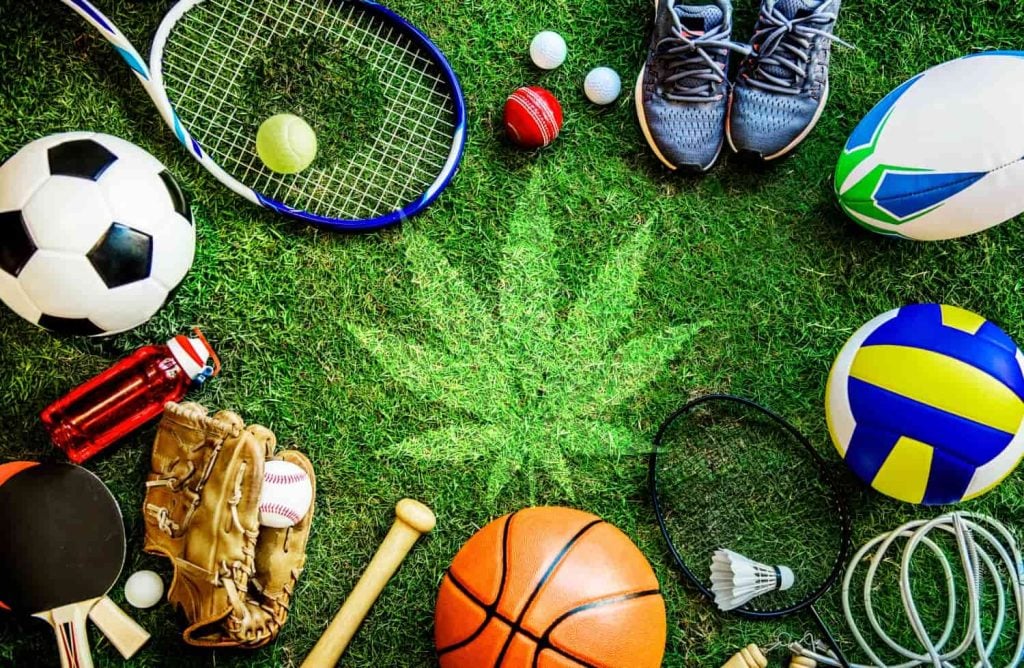Sports commissions generally prohibit athletes from using cannabis. However, public opinion is rapidly changing, and official sports associations have had to relax their policy on white sports marijuana.
Click here to subscribe to our print edition!
This concept encompasses increasing the permitted level of THC metabolite in the urine by a factor of 10, from 15 ng/ml to 150 ng/ml. On occasion, drug tests allow a level of 180 ng/ml to make an individual decision in case of uncertainty in the results.
The ethical issues of marijuana use in sports have been vigorously debated several times:
- In 1989, the International Olympic Committee organized the First World Doping Conference in Switzerland and created the World Anti-Doping Agency, WADA.
- Their 2004 code is now enforced by 700 sports organizations, including the IOC, the International Paralympic Committee, professional sports leagues, and national anti-doping agencies. The World Anti-Doping Code refers to cannabis as a prohibited substance.
- In 2012, the percentage of positive tests for cannabis was 9 per cent; in 2012, it was at 2.4 per cent.
- The scandal erupted in 2021 when American track and field athlete Shakarrie Richardson was suspended from the Tokyo Summer Olympics. This WADA decision was criticized by American society and U.S. congressmen, calling the approach “outdated and restrictive.”
- In September 2022, WADA announced the scientific results and left cannabis on the list of prohibited substances while still actively continuing to research the effect of THC in increasing exercise performance.
Sports where Marijuana Can Help

Is marijuana legal in any professional sport? The health effects of controlled substances are still a controversial issue to this day. In 2019, the World Health Organization recommended changing the level of cannabis control in the United Nations.
As a result, the UN Commission on Narcotic Drugs removed cannabis from Schedule IV of the Single Convention on Narcotic Drugs (in effect since 1961). This was a symbolic victory for the marijuana use supporters of legalization, but it did not directly influence the states’ decision on legalization.
Representatives from various sports are seeking permission from competent authorities to smoke weed legally:
- National Football League players wrote a letter to Doctors for Cannabis Regulation asking them to influence the NFL’s position on cannabis to use it as a neuroprotectant and for pain relief instead of opioids.
- The NFL also awarded 2 grants to study the benefits of medical cannabis for sports head trauma, specifically treating concussions.
- In 2022, Major League Baseball (MLB) allowed teams to advertise certified CBD products without psychoactive levels of THC, which commonly amounts to around 0.3% of THC
- NBA players are fighting the stigma of cannabis use, promoting legalism, and doing business in the field.
- The UFC has allowed fighters to use marijuana partially. A marijuana test will no longer be a violation of the organization’s rules, but the U.S. Anti-Doping Agency has clarified that athletes will be penalized for using it.
- 420 Games is an Olympic-style sporting event where potheads and their families compete in triathlons, obstacle races, mountain bike races, golf tournaments and a signature 4.20-mile race. And competition organizer Jim McAlpin and soccer player Ricky Williams opened Power Plant Fitness, where members use cannabis for athletic purposes – before, after and during their workouts.
Health Effects of Cannabis on Athletes
In high-performance sports, the anti-inflammatory and analgesic effects of cannabis have worked well in training as prevention of spasms, injuries and inflammation of ligaments, muscles and tendons. Compared to alternative anti-inflammatory drugs like opiates, cannabis has a lower risk of side effects and carries less risk of causing addiction.

The bronchodilator effect promotes better results if a dynamic aerobic activity is involved in the sport. For example, in sports such as:
- running;
- speed skating;
- martial arts;
- boxing;
- soccer;
- football;
- basketball.
People who have suffered multiple head injuries develop chronic traumatic encephalopathy. Symptoms: problems with memory, thinking, mood, and behaviour. Calvin Johnson, a former professional athlete and NFL star, is funding research led by Harvard University on the therapeutic potential of medical cannabis for sports head trauma.
What Does Cannabidiol Do
The medical use of cannabis can achieve specific results, which are now being actively researched by scientists:
- CBD reduces disordered thinking and anxiety;
- relieves the nervous system;
- relieves neuropathic pain;
- protects against stress and neurotoxicity;
- speeds up metabolic processes and burns fat;
- treats tobacco addiction;
- treats musculoskeletal diseases, stimulates bone formation in fractures;
- has an antioxidant effect;
- has anticonvulsant effect;
- reduces the frequency of seizures in patients with epilepsy;
- helps in the treatment of post-traumatic stress disorder;
- reduces intoxication and the sedative effects of THC.
When used medically, CBD is well tolerated but can cause changes in appetite, diarrhoea, or feelings of fatigue. For extreme sports like motorsports, caution should be exercised when using cannabis. Impaired hand-eye coordination, lagged reactions and memory problems can be too much to bear. If your athletic discipline involves reacting to rapidly changing situations and having to operate vehicles, do not use the substance in training. Cannabinoids are on the list of banned substances in competition, with cannabidiol being a particular exception.
Weed is better used for therapeutic and recovery purposes, particularly medical cannabis for treating sport head injuries, which is especially relevant to motorcycle athletes. The relevant question is, how long does weed stay in your system? With a single and infrequent consumption, tetrahydrocannabinol is eliminated in 72 hours, while complete elimination in pot lovers with a long experience can take 30-90 days due to the accumulation of the active substance in the tissues of the body.






Related Articles